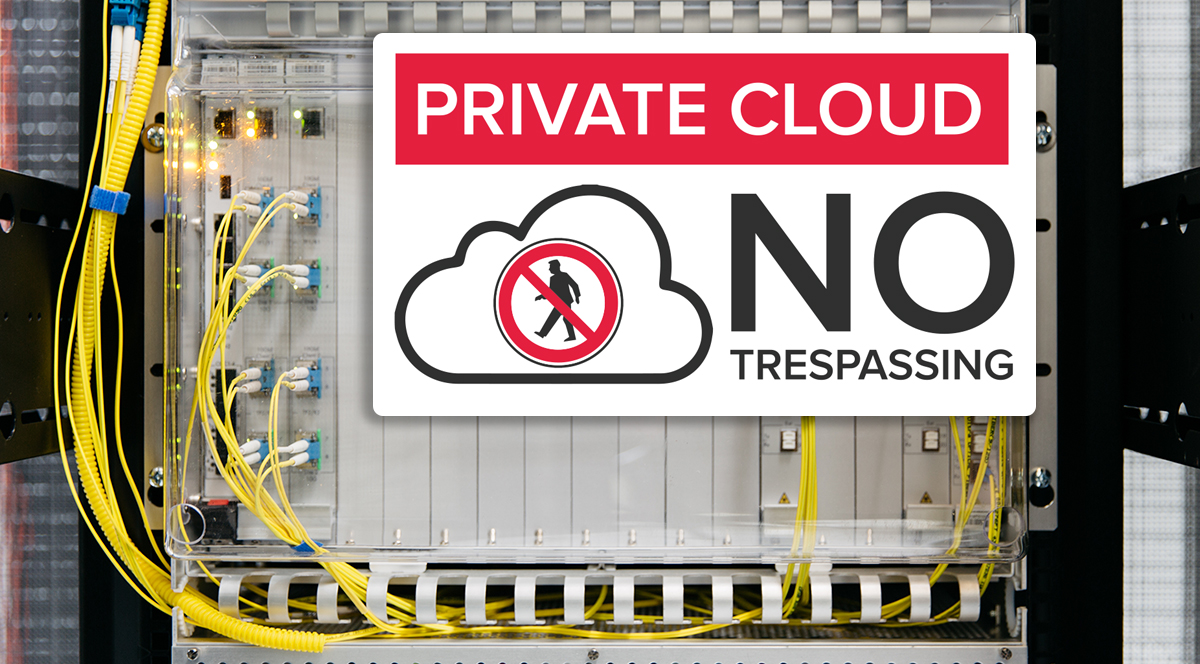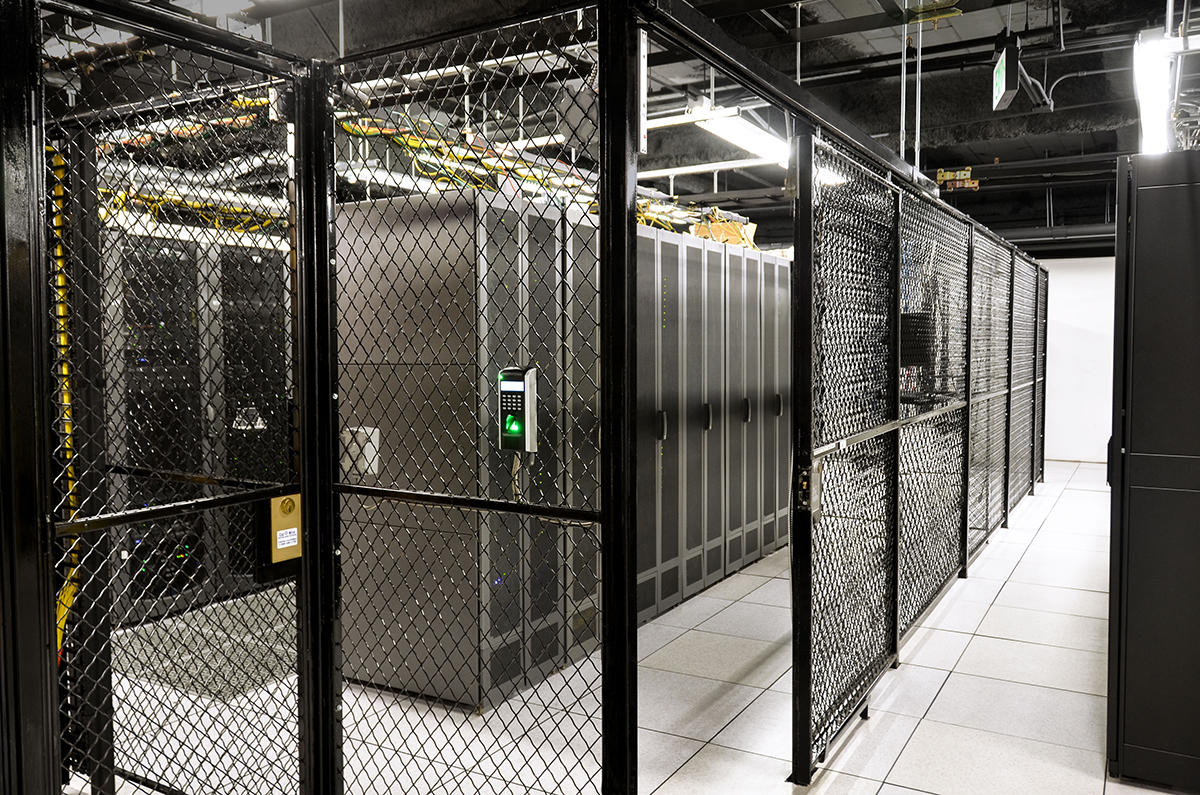
In recent years, the concept of the cloud has become synonymous with modern tech infrastructure. With its flexible use of resources, scalability, and cross-platform compatibility, the cloud has revolutionized the role of technology in our lives. By integrating loose webs of useful tools and devices into single unified networks, the cloud is interconnecting our digital lives.
At its core, the concept is simple: why store information and services on local servers when they can be stored remotely and accessed from anywhere via the internet?
The cloud does more than free up computing resources on local machines and reduce hardware requirements. The way it connects our data is designed to promote ease of use and improved user experiences as well. With cloud services becoming increasingly common, it’s difficult to imagine a modern world without the cloud.
But every solution has its downsides. At the core of the argument against the move to cloud-based hosting is a question of security.
After all, is anything stored online ever really safe?
Sure, a company moving its data infrastructure off-site may reduce expenses and help mitigate certain risks. When you put your data in the hands of someone else though, you surrender a certain degree of control over that data. For organizations within highly regulated sectors, those dealing with high volumes of private client data, or groups whose computing needs are more specific than what is available through pre-built cloud solutions, what options do they have?
If your organization has been looking for an alternative to in-house dedicated server hosting but has been hesitant to adopt the cloud for any of the above-mentioned reasons, then I just might have the perfect solution for your business’s needs.
Say hello to Private Cloud.
But what is a Private Cloud?
Like other forms of cloud-based solutions, private clouds are networks of servers and user devices connected via the internet. Also known as internal or corporate clouds, private clouds utilize flexibility and scalable resource allocation to offer superior resource management. Unlike traditional cloud services though, private clouds utilize a single organization’s internal network.
In other words, rather than a system of interconnected servers housing resources for multiple independent users, private clouds are operated by single organizations for the exclusive use of their own members.
By utilizing virtualization technology, private clouds build off of new or existing infrastructure to construct a virtual multi-user environment. Resources are shared across multiple servers allowing them to be used more effectively while minimizing wasted space. Because a single organization retains control over the network, decisions on software and hardware options remain in the hands of the owner. This allows for a higher degree of optimization. It also improves overall security by limiting external interaction, reducing the chance of remote access by unauthorized users.
Unlike traditional cloud services, private clouds utilize a single organization’s internal network.
But how is this really that different from traditional cloud services?
Private Cloud vs Public Cloud

Typically, when someone refers to “the cloud,” they are thinking of services housed on public cloud servers. Software like Dropbox, Google Drive, Netflix, and Office365 are popular examples of this. These tools make use of public internet lines to transfer and store data for users across the world, allowing them access as needed from anywhere. While these services are incredibly useful (and some of my personal favorites), they have a downside. In exchange for the convenience these services provide, customers are trading away control over their data.
For instance: let’s say you have some files stored in a Dropbox account. We like the convenience of remote storage services like Dropbox because it means our files can easily travel with us, are accessible across various device formats, and don’t take up space on our personal computers. All perks.
But what actually happens with your data?
While many service providers own their own data centers filled with thousands of servers, this isn’t true for all of them. Some companies even use a service known as colocation. Colocation allows clients to rent space within data centers from other third-party organizations. This isn’t inherently negative, but it does present additional risks.
After all, each layer between you and your data represents the loss of a little more control and the chance for unforeseen errors.
For those primarily using cloud services in their personal lives, these negatives can seem relatively minor. For large companies depending on cloud infrastructure to keep their businesses running though, even small issues can have catastrophically negative impacts.
This is where a private cloud solution truly shines.
Private cloud networks offer users the same system-wide benefits of public cloud. In exchange for a higher upfront cost and greater required expertise, they reduce external risks by remaining within a controlled environment. For large organizations running a variety of software across multiple departments and servers, this is especially ideal. Private Cloud virtualization allows resources to be re-allocated dynamically system-wide. This means dedicated servers whose extra resources may otherwise go wasted can be used to their fullest extent.
Private cloud networks allow users to reap the benefits of the cloud while mitigating its risks.
With private cloud networks entirely under the control of a single organization, the specifications of the network can be molded to fit the company’s exact needs.
-
Need specific software or operating systems to manage your network?
-
Have an established security protocol or preferred firewall that needs to be maintained?
With private cloud, you and your IT team retain full control over the building blocks of your network. This makes it an ideal solution for organizations in highly regulated industries. Healthcare providers for example, who are bound by HIPAA regulations, may be unable to benefit from cloud infrastructure due to concerns over data privacy. Private cloud networks allow users to reap the benefits of the cloud while mitigating its risks.
Now, private cloud does carry a few drawbacks.
While an internal private cloud network does offer the same flexibility and scalability of its public cloud counterparts, a private network must be run and maintained by skilled IT professionals. After all, one of the biggest perks of a private network is that it keeps information internal. To properly manage the system, an organization’s IT infrastructure would need to remain internal as well.
Additionally, if everything remains in-house, then the investments required to build a private cloud network are akin to building your own data center.
For organizations that already rely on an internal network of on-site servers, the downsides of private cloud can be reduced. Chances are, they already have much of the hardware and personnel requirements met. In these instances, transitioning over to a private cloud could be done primarily using existing resources. As the private cloud is constructed and deployed, additional hardware can be added as needed.
For smaller organizations still growing their IT departments though, the transition to a private cloud can require a significantly higher investment than the use of public cloud services.
In general, while the move to private cloud can reduce business expenses, that should not be the primary motivating factor for organizations considering the switch. For businesses seeking to improve agility and create a more dynamically efficient system though, then private cloud might be the perfect solution.
Virtual Private Cloud

Let’s say you’re a small to mid-sized organization looking at making the switch to a private cloud infrastructure.
You’ve looked over the costs and benefits and determined that while the cloud could offer improvements, for a variety of reasons, public cloud services don’t meet all your needs. Unfortunately though, while private cloud may sound appealing, the tech expertise needed to construct and manage your organization’s private cloud are beyond your company’s current technical abilities.
What can you do?
This situation has led to a rise in Infrastructure as a Service (IaaS) companies offering virtual private cloud services.
Virtual private clouds work just like the private cloud networks discussed up to this point. Both types use virtualization technology to create a cloud-like experience across multiple privately owned servers.
With virtual private cloud though, a data center provides space and hardware to an organization for a monthly fee. So instead of hosting these devices in-house and running them through an internal network, they’re accessed remotely. Depending on the chosen plan, clients might even have access to technicians working at the data center. Acting like a remote IT team, these technicians can perform upkeep and server maintenance on the network.
In addition to state-of-the-art digital security measures and high-end firewalls, most data centers prioritize their physical security and disaster mitigation procedures just as highly.
Virtual private clouds are similar in nature to virtual private server (VPS) hosting. VPS hosting is a service where companies split large servers into multiple smaller servers with their own dedicated resources. These virtual servers are then rented to external clients. In a true virtual private cloud though, server space is not shared between multiple unaffiliated users. For a virtual cloud to be private, the entire server or servers, must be owned by a single entity.
While this method may result in a slight reduction of overall security (after all, internal hardware on an internal network will always be the most secure option), it allows organizations to retain the level of control offered by a private cloud. Additionally, virtual private clouds can reduce in-house IT costs and still provide greater security than public cloud options.
In fact, it’s possible that a virtual private cloud stored at a secure data center may provide greater security than what is available in-house. In addition to state-of-the-art digital security measures and high-end firewalls, most data centers prioritize their physical security and disaster mitigation procedures just as highly.
After all, would you keep your money in the bank if they just left the vault door open?
When a company’s entire business model is centered around keeping clients’ data safe, the longevity of the service depends on its ability to meet its customers’ security concerns effectively and consistently.
Hybrid Cloud
The list of public cloud services grows with each day. For this reason, more companies are realizing their specific IT needs might best be met through a combination of both public and private cloud solutions. Known as a hybrid cloud, this growing hosting solution offers organizations the best of both worlds.
Through a process called cloud bursting, hybrid cloud networks offer organizations even greater adaptability. Cloud bursting is a straight-forward process: as the resource demands of an organization grow, data stored within a private cloud network can be dynamically uploaded to public cloud services to free additional resources. As these demands shift, the data stored publicly can be transferred back and forth as needed.
At an increasing rate, this shift to hybrid cloud networks is leading to a growth towards hybrid IT. The idea behind hybrid IT is that a company’s infrastructure and IT personnel will become a more fluid entity. By pulling resources from the best available public and private options, networks can be created to optimize for each organization’s needs.
Community Cloud
The last type of cloud hosting that needs mentioning is community cloud. A community cloud works in much the same way as a private cloud, but on a larger scale. Rather than a single company or organization running their own virtual multi-user experience, a community cloud provides the same level of interconnectivity across multiple organizations within a similar niche or community.
Of course, the consequences of this system should be immediately obvious:
-
More users means lower costs. Since necessary hardware requirements are shared across multiple organizations, the price is shared as well
-
Although community cloud is more cost-effective, it is also less secure and less customizable. Because pieces of the network are shared, no individual organization has complete control
In other words, community cloud can be seen as a step in-between public and private clouds offering a middle-end experience to users who all have specific but largely similar needs from their network. For this reason, community cloud is a better solution for organizations working with multiple trusted partners throughout their particular industry.
In Closing
Now that you better understand the different types of cloud hosting, it’s time to consider which option best fits your organization’s needs. At the end of the day, your decision will primarily come down to organizational priorities.
Is your business in need of a hosting solution that maximizes flexible use and scalability while minimizing costs? Is top-of-the-line security not on the top of your list of concerns? Then one of the many public cloud hosting options available may prove an ideal solution for your hosting needs.
But maybe you’re looking for a way to optimize your existing system or build a new one around the desire to maximize security and control? Is system efficiency of higher priority than reducing overall costs? Then a virtual or in-house private cloud might be exactly what you’re looking for.
For businesses seeking to improve agility and create a more dynamically efficient system, private cloud might be the perfect solution.
But don’t stop there!

At Hivelocity, we offer a wide and varied range of hosting options suitable for any business’s needs. From our top-of-the-line dedicated server hosting options to colocation services and beyond, Hivelocity is in the business of helping your organization run more effectively.
Whether you’re interested in virtual private clouds, VPS hosting, or more, give our sales team a call or send us an email so we can show you how making the switch to Hivelocity can benefit you.
Still not sure? Check out these user testimonials and see for yourself what people are saying about Hivelocity. We’ve helped hundreds of businesses grow; now let us know how we can help you!
Your turn!
What’s your experience with the cloud? Are you a business owner considering or who’s already made the switch to a private or public cloud infrastructure? Leave a comment below. If you found this article helpful, be sure to share it on your favorite social media platforms, and don’t forget to like us on Facebook!
– Written by Sean Kelly
Additional Links:
Searching for more great content? Interested in cPanel, Virtual Private Servers, or Colocation? Check out our recent posts for more news, guides, and industry insights!



1 thought on “What is Private Cloud?”
Amazing post with a lot of useful stuff. We appreciate you creating excellent articles for us regarding private cloud.